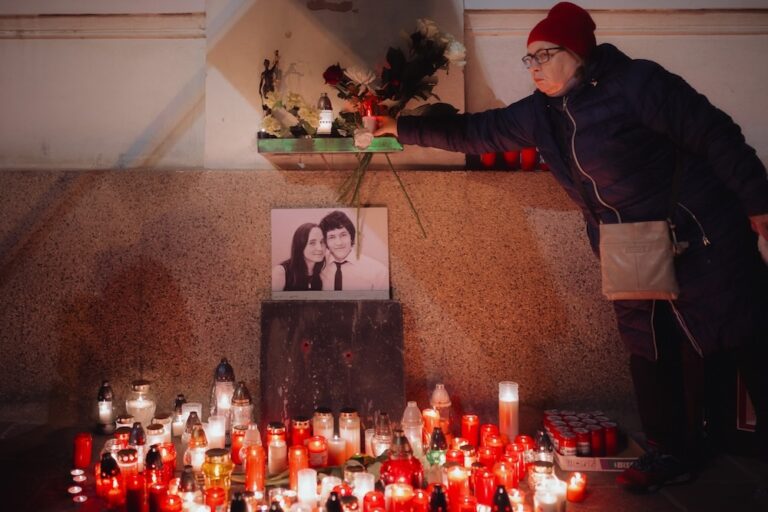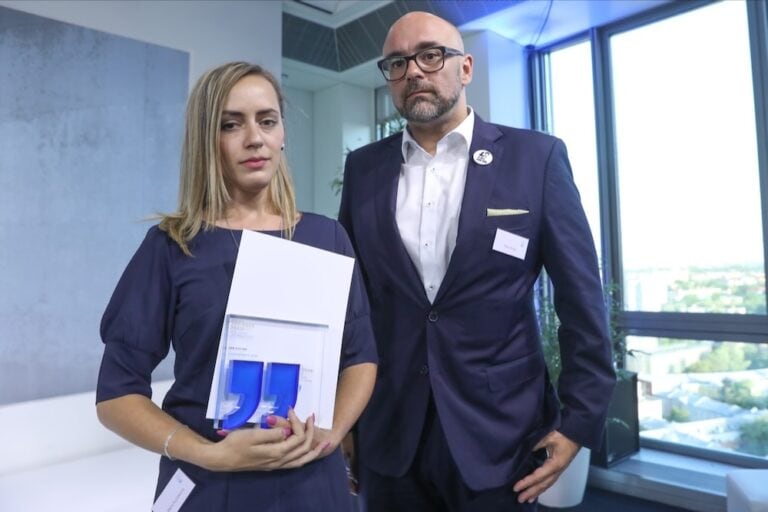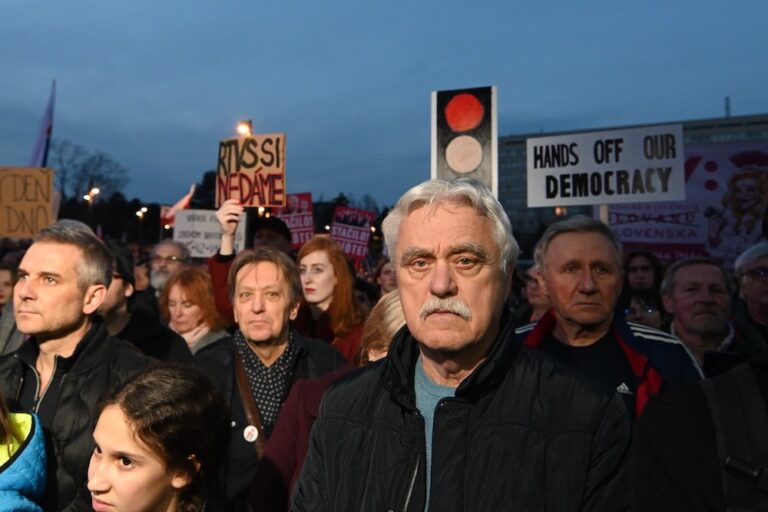Slovak authorities should stop pressuring a Slovak journalist to divulge his source for reports on wiretapped conversations between alleged organised crime figures and senior police officials, the International Press Institute (IPI) and its affiliate, the South East Europe Media Organisation (SEEMO), say.
Slovak authorities should stop pressuring a Slovak journalist to divulge his source for reports on wiretapped conversations between alleged organised crime figures and senior police officials, the International Press Institute (IPI) and its affiliate, the South East Europe Media Organisation (SEEMO), said today.
Journalist Tom Nicholson told IPI that prosecutors investigating the leak of transcripts of the conversations suggested that he was not entitled to protect his sources under Slovakia’s Press Act because he does not have a full-time contract or carry a press card.
Nicholson is a Canadian journalist who has reported in Slovakia for nearly 20 years and currently publishes news stories related to alleged corruption and misuse of power by officials on the website http://nicholson.blog.sme.sk/.
The authorities’ suggestion apparently stems from an extremely-narrow interpretation of the Act, which prohibits the publishers of periodicals and news agencies from disclosing the source of information used in reports where confidentiality was promised to the source. The Act also extends that protection to employees and to anyone who provides such information to the publisher or news agency “under a commercial or civil contractual relationship … in which the person undertakes to provide information … to the publisher professionally”.
Nicholson, who said that the Bratislava-based SME daily pays him for the content he generates under a part-time contract, told IPI that authorities who made the suggestion in an interview to which he was summoned “were seeing what they could get away with and get me to cough up”. Expressing confidence that he ultimately would be vindicated even if authorities pursued the matter, he noted that he was employed full time as a journalist until recently, raising the implication that authorities would need to prove that he received the documents after he assumed part-time status in order to proceed.
“It’s just pressure,” he said. “I don’t expect they will [pursue proceedings]. This happens in Slovakia quite frequently. Since I wrote a book on corruption, it’s happened quite often. They will file charges, bring you in and then it will peter out.”
Describing a number of instances in which civil and criminal proceedings were initiated against him over his reporting, only to be dropped, he added: “If you stand your ground and you write about it and get press coverage, then they back off.”
IPI Press Freedom Manager Barbara Trionfi commented: “The pressure applied to Mr. Nicholson shows a lack of respect for both the spirit and the letter of the law safeguarding the confidentiality of journalists’ sources. Given Mr. Nicholson’s longstanding practice of journalism, which continues to this day, he is certainly entitled to protect his sources and any attempt to force him to disclose them violates the Press Act. Further, it contravenes Article 10 of the European Convention on Human Rights, which protects the right to freedom of expression and the right to prevent the disclosure of information received in confidence. We urge authorities to reject the narrow interpretation of the Press Act advanced in this incident and to uphold the vital role of journalism in a democracy.”


